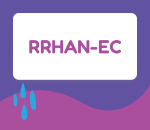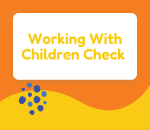Preparing for Work in Early Childhood Education and Care in 2025
As we approach 2025, the Early Childhood Education and Care (ECEC) sector in South Australia is booming! Understanding the current landscape, essential skills, and emerging trends will be crucial for employers and employees in this vital industry. Current Employment Landscape The unemployment rate in South Australia stands at 4.2% as of September 2024, reflecting a…
As we approach 2025, the Early Childhood Education and Care (ECEC) sector in South Australia is booming! Understanding the current landscape, essential skills, and emerging trends will be crucial for employers and employees in this vital industry.
Current Employment Landscape
The unemployment rate in South Australia stands at 4.2% as of September 2024, reflecting a competitive job market, particularly in the ECEC sector. A new report states the Australian ECEC workforce comprises more than 200,000 overwhelming female workers, and the nation needs 21,000 more educators to meet current demands and an additional 18,000 to meet future expectations (Jobs and Skills Australia, 2024). With a growing demand for quality early childhood education, there are ample opportunities for both new entrants and experienced professionals.
Key Skills for the ECEC Sector
For employers and employees, developing hard and soft skills will be crucial for success in the ECEC sector. Here’s how each skill set benefits both parties:
Soft Skills
- Communication: Effective communication is crucial for building relationships with children and their families. Educators must be able to convey information clearly and engage in active listening to understand the diverse needs of families from various cultural backgrounds (Department for Education, 2024).
- Empathy and Emotional Intelligence: Understanding and responding to children’s emotions is essential. Educators should cultivate empathy to create an inclusive environment where every child feels valued, particularly those from underrepresented groups (Early Childhood Australia, 2024).
- Adaptability: The ability to adapt teaching strategies to meet the needs of a diverse classroom is vital. Flexibility allows educators to provide personalised support, ensuring that all children can thrive, regardless of their backgrounds (Australian Institute for Teaching and School Leadership, 2023).
Hard Skills
- Cultural Competency: As the ECEC sector embraces diversity, cultural competency becomes essential. Educators should be knowledgeable about various cultural practices and how they impact children’s learning. This competency is essential for creating an environment that respects and values all children’s identities (Equal Opportunity Commission, 2024).
- Curriculum Development: Skills in developing inclusive curricula that reflect the community’s diversity by integrating culturally relevant materials and teaching methods that resonate with all learners (National Quality Framework, 2023).
- Behaviour Management: Understanding how to manage a diverse classroom effectively is critical. Educators should be equipped with strategies to handle different behavioural needs, fostering an environment where all children feel safe and supported (Families in Australia, 2023).
Diversity and Inclusion in ECEC
Incorporating diversity and inclusion into the ECEC sector benefits children and fosters a strong community within educational settings. A diverse workforce can better reflect and serve the varied backgrounds of the families they work with, enhancing children’s educational experiences and outcomes (Australian Government, 2023).
- For Employers: It is crucial to prioritise hiring practices that seek diverse candidates and promote an inclusive workplace culture. Training programs focused on diversity can equip staff with the skills necessary to support an inclusive environment, benefiting educators and the children in their care.
- For Employees: Engaging in professional development opportunities centred on diversity and inclusion allows educators to enhance their skills and better serve the needs of all families. Building relationships with families from various cultural backgrounds fosters trust and collaboration, which is vital for effective early childhood education.
South Australia’s Commitment to ECEC
The South Australian Government has responded to the Royal Commission into Early Childhood Education and Care by investing $56 million over four years in attracting, developing, and supporting the early childhood education and care workforce.
“The early childhood education and care workforce is critical to the delivery of our vision for the early childhood system, which is why the $56 million Early Childhood Workforce Fund is vital. We must attract and support high-quality educators and look at innovative ways to do so” (Boyer, 2024).
The Government will drive reforms in eight key areas to enhance the quality, accessibility, and flexibility of early childhood services, ensuring they better meet the needs of families. Here are some key highlights:
- Workforce Strategy: Set to launch soon, aimed at growing, supporting, and retaining early childhood professionals.
- Scholarships and Upskilling: Financial support will be provided for existing early childhood workers to gain teaching qualifications, addressing the need for skilled educators as access to preschool services expands.
- Access to Preschool: Beginning in 2024, vulnerable children, including Aboriginal children and those in care, will benefit from increased preschool services, highlighting the sector’s commitment to inclusivity and quality.
Tips for Attracting and Retaining Talent in Early Childhood Education and Care
For employers, fostering an environment that values professional development and continuous learning will be essential in attracting and retaining skilled staff. Pursuing further education and honing interpersonal skills will enhance employees’ employability in this dynamic sector.
As the ECEC landscape evolves, staying informed about industry trends and demands will be critical for success in 2025 and beyond.
- Emphasise Flexibility and Work-Life Balance: Flexible work arrangements, such as part-time shifts or a compressed workweek, appeal to educators looking for better balance in their personal and professional lives.
- Invest in Professional Development: Educators value opportunities to grow. Promote ongoing training, upskilling, and access to accredited courses. Providing a clear path for career advancement increases retention and boosts engagement.
- Build a Positive Workplace Culture: A supportive, inclusive environment fosters loyalty. Celebrate staff achievements, encourage open communication, and create a team culture where every educator feels valued and heard.
- Offer Competitive Pay and Benefits: Ensure your compensation packages meet industry standards and highlight additional benefits like paid time off, superannuation contributions, and well-being programs.
- Leverage Networking and Partnerships: Use staff referral programs and connect with local training institutions to source fresh talent. Partnering with universities and TAFEs can provide a pipeline of enthusiastic new educators ready to enter the sector.
References
- Australian Bureau of Statistics (2024). Unemployment rate statistics. Retrieved from ABS
- South Australian Government (2024). Early Childhood Education and Care Reforms. Retrieved from Government of South Australia
- Royal Commission into Early Childhood Education and Care (2024). Final report. Retrieved from Royal Commission
- Jobs and Skills Australia. (2024). The Future of the Early Childhood Education Profession – Extended Report. Accessed via Office Online: View Document.
- Charles Sturt University News. (2024). Early Childhood Education Workforce Issues to be Tackled at Conference. Retrieved from Charles Sturt University News.







